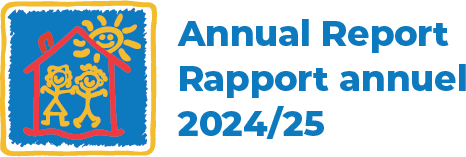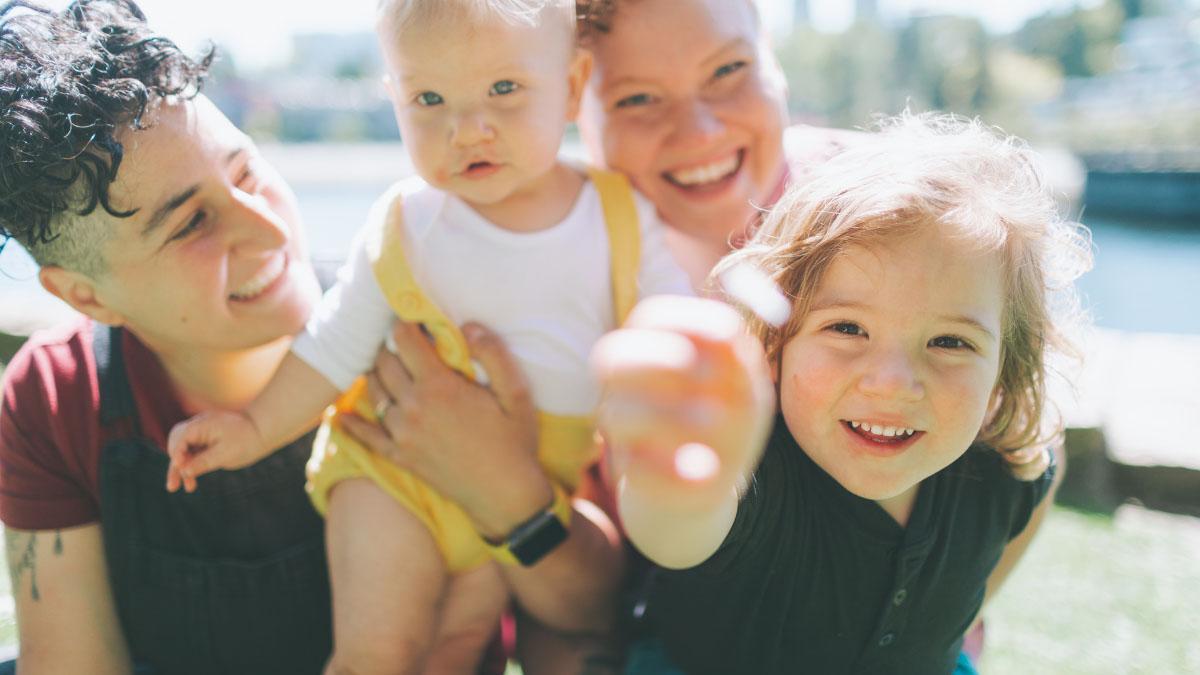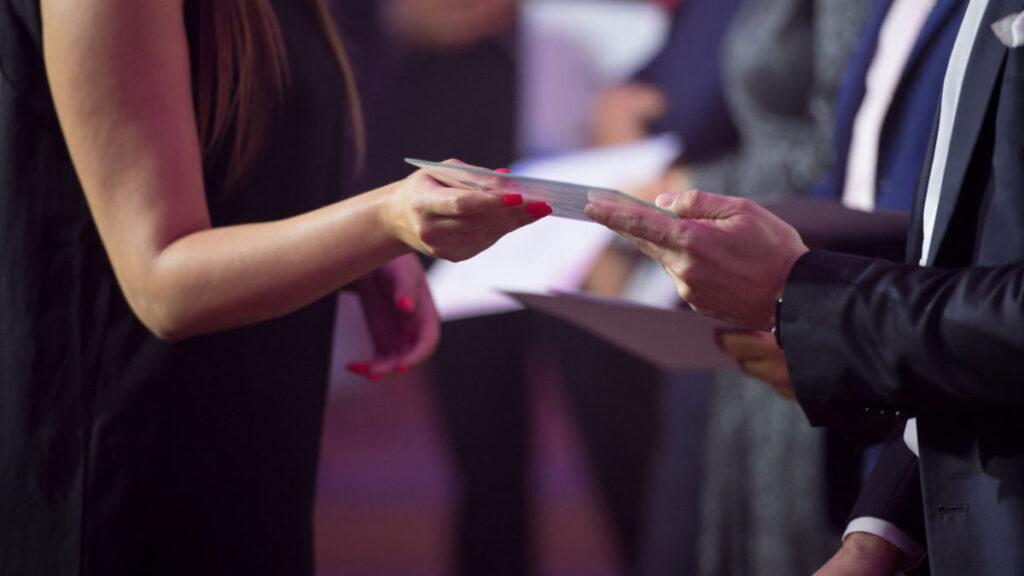Black Services Unit
Services by and for the Black Community
Launched in late 2024, the Black Services Unit (BSU) provides culturally grounded child welfare services to Black children, youth, and families. The service delivery is grounded in the 7 principles of Kwanzaa and Afro Centric Service Delivery and the recommendations of One Vision, One Voice
This year, BSU staff worked with schools to challenge biased reporting, support inclusive practices, and advocate for Black students and caregivers. These efforts helped reduce barriers and build stronger educational experiences.
Families consistently shared that the BSU’s culturally attuned approach fostered trust and validation. For many, it felt different from past experiences—more responsive, respectful, and empowering.
The BSU also strengthened ties with more than 15 community organizations, including Jaku Konbit and Pinecrest-Queensway CHC. These partners plan to meet quarterly through the Community Navigation Council to address service gaps and co-create solutions. In the spirit of continued collaboration, leaders in the Black Francophone community seek to establish a structure similar to the Community Navigation Council. Both Anglophone and Francophone leaders in the Black community have met to begin building lines of communication and explore ways to align and support the work of CASO’s two BSU teams.
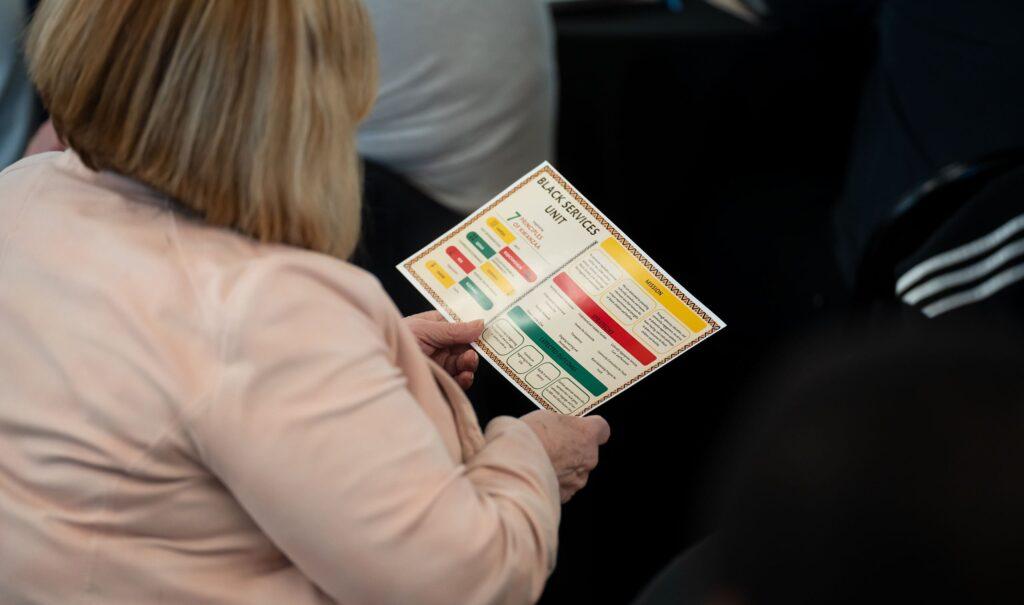
In addition, the BSU co-leads CASO’s Muslim Steering Committee, which supports improved service delivery for Ottawa’s Muslim communities. The group emphasizes faith-informed care, cultural humility, and better access to Muslim-identifying workers.
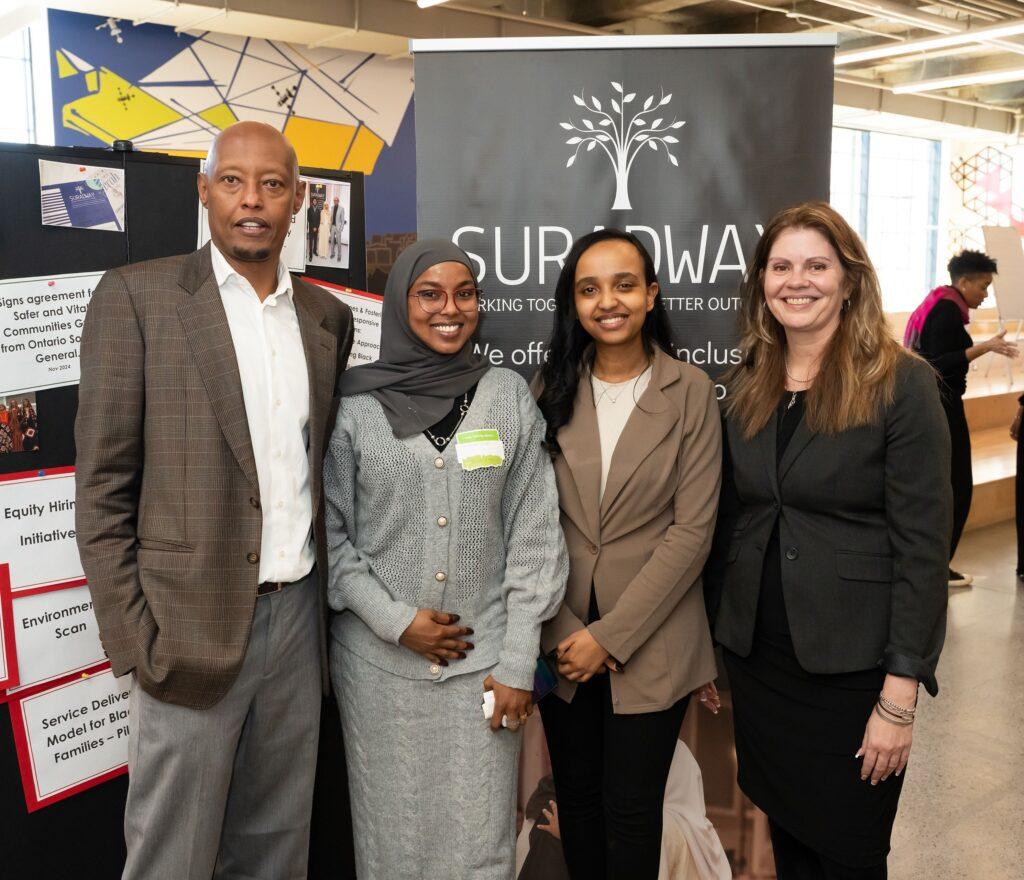
The BSU’s work reflects a broader shift toward systems that recognize identity as core to safety and wellbeing.
Indigenous Partnerships and Practice
Honouring identity. Strengthening relationships. Rebuilding trust.
Through the First Nations, Inuit and Métis (FNIM) Pod and Forum, CASO continued to partner with Indigenous organizations in ways grounded in cultural safety, relationship and reciprocity.
This year, monthly integration meetings with partners such as Tungasuvvingat Inuit and Odawa helped surface shared goals and strengthened collaboration. One key highlight was a co-created safety plan with two First Nations Bands, centred in ceremony, traditional food, and community leadership.
Staff participated in Red Dress Day, Indigenous History Week, and events marking the Truth and Reconciliation Commission’s 10th anniversary—fostering reflection and accountability.
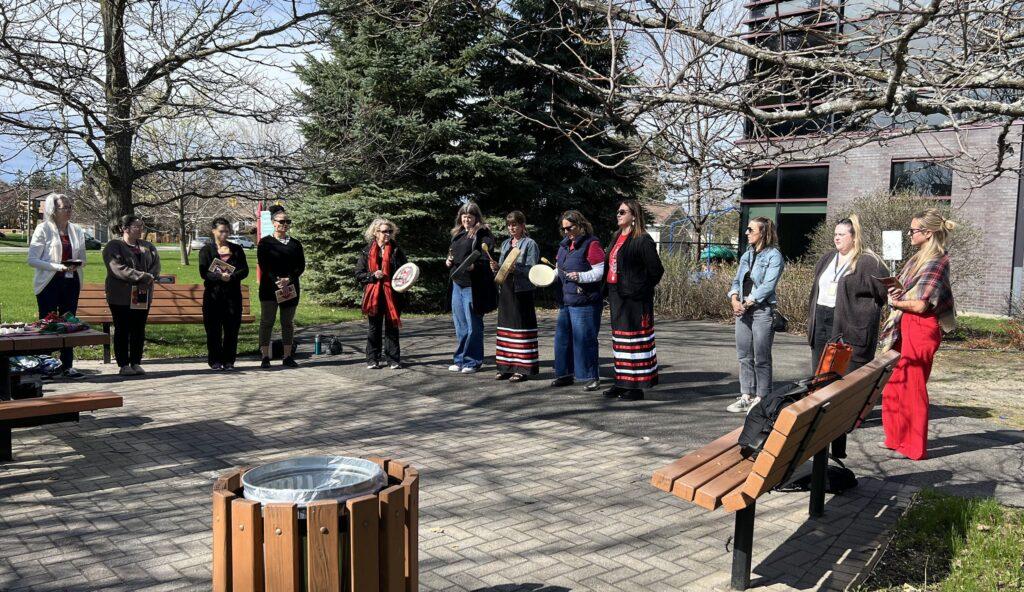
Indigenous History Week Photo
CASO’s FNIM Pod also contributed to policy-level conversations in the Executive Director’s Circle, advocating for underfunded prevention services, better data-sharing, and support for urban Indigenous child wellbeing agencies.
This work is mirrored internally through the Waananoshka affinity group, which continues to create space for FNIM-identifying staff to connect, reflect, and lead. By fostering belonging and amplifying lived experience, Waananoshka strengthens the organization’s commitment to reconciliation from within.
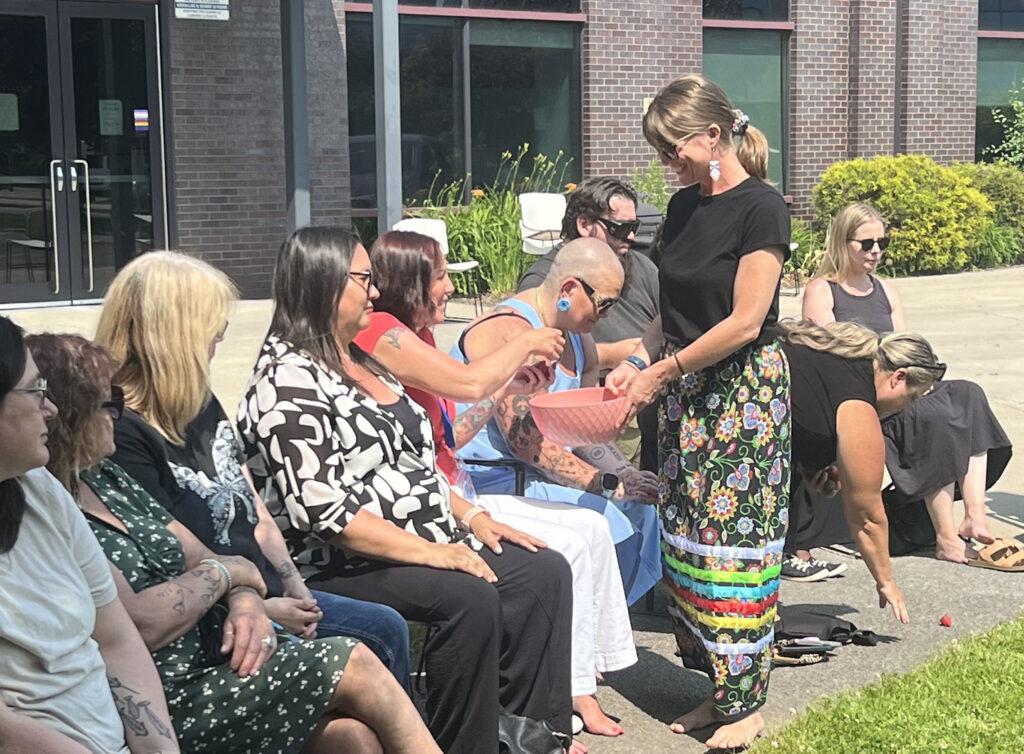
Indigenous History Week Photo
CASO remains committed to walking in step with FNIM partners, recognizing that reconciliation is an active, ongoing responsibility, one that begins in community and is sustained through relationship.
2SLGBTQIA+ Inclusion
Creating Affirming, Celebratory Spaces for All Youth and Staff
Led by the Queer Forum, CASO’s 2SLGBTQIA+ inclusion work aims to amplify youth and staff voices, build affirming spaces, and strengthen partnerships with queer-led and allied organizations.
In May 2025, the Queer Forum hosted the second annual Community Resource Marketplace to mark the International Day Against Homophobia, Biphobia, and Transphobia. More than a dozen community organizations—including Ten Oaks Project, Youth Services Bureau, and Family Services Ottawa—joined queer youth in care and their supporters to share resources and celebrate identity. Youth described the event as meaningful, inclusive, and empowering. Throughout the afternoon, youth accessed community resources, shared stories, met queer and non-queer role models within the sector, and built connections. The event showcased how affirming, celebratory spaces can foster healing, confidence, and community.
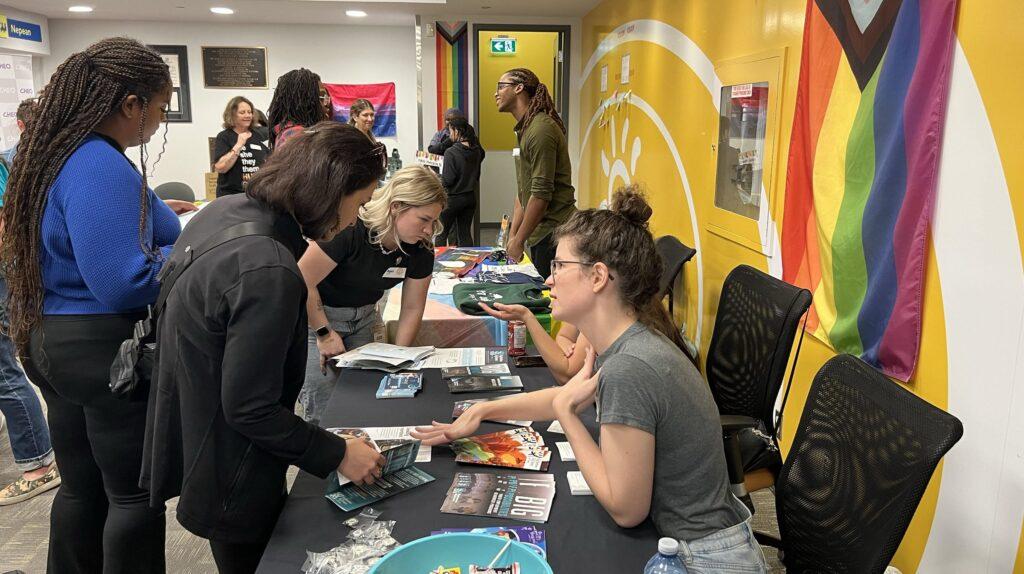
IDAHOBIT Community Partner Fair
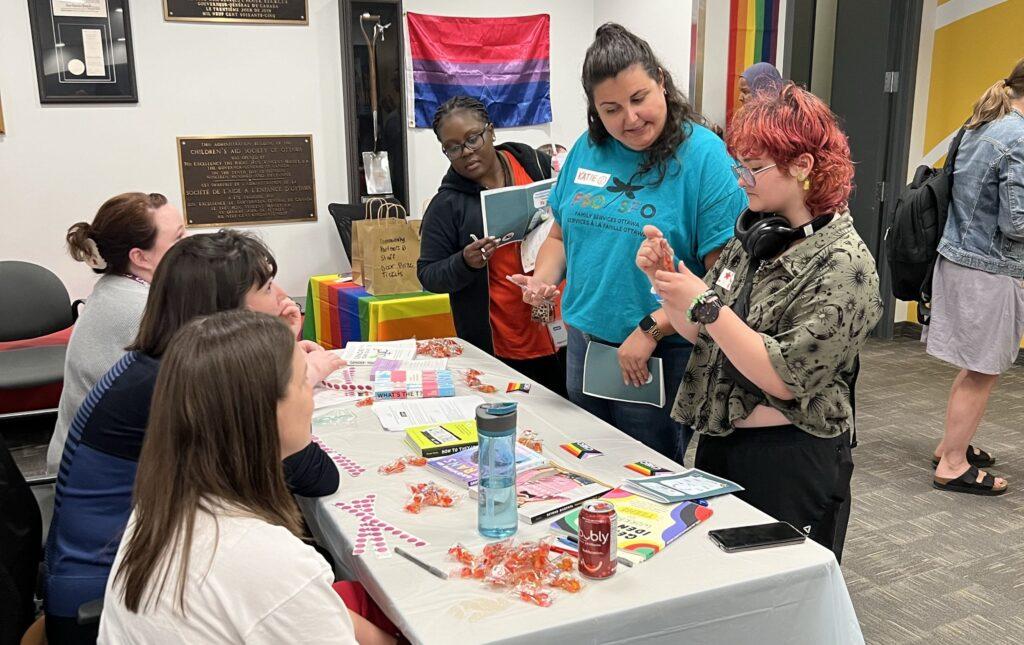
IDAHOBIT Community Partner Fair
Youth voice remained central throughout the year. The agency continued to support the Rainbow Youth in Care group, a voluntary peer-led program offering virtual gatherings, community referrals, and inclusive programming. Young people also registered for a new overnight retreat, Camp Lifting Leaves, launching in fall 2025.
During Pride Month, celebrations included a youth-led video launch, a community BBQ, and participation in Capital Pride’s street festival. These events were co-designed by youth and caregivers, reinforcing the importance of visibility and belonging.
Internally, the SAGE (Sexual and Gender Equity) affinity group provided space for queer and trans staff to connect and reflect. All staff, regardless of identity, were encouraged to engage in Queer Forum initiatives to help build knowledge, allyship, and inclusive practice.
Together, these efforts reflect the agency’s belief that safety and wellbeing must include affirmation, celebration, and space for all youth and staff to be fully themselves.
Accessibility
Building a more accessible workplace
This year, the Children’s Aid Society of Ottawa deepened its commitment to accessibility by identifying and addressing barriers that impact staff, families, and community members with disabilities.
In early 2025, the agency partnered with the Abilities Centre—a non-profit organization dedicated to advancing inclusion for people of all ages and abilities. Over two days, a diverse group of staff took part in in-depth training focused on challenging unconscious bias, surfacing systemic barriers, and imagining accessibility beyond compliance.
Participants reflected on personal assumptions and organizational practices that may exclude or disadvantage individuals with disabilities. The sessions sparked meaningful discussion and surfaced opportunities for growth across service delivery, workplace culture, and communications.
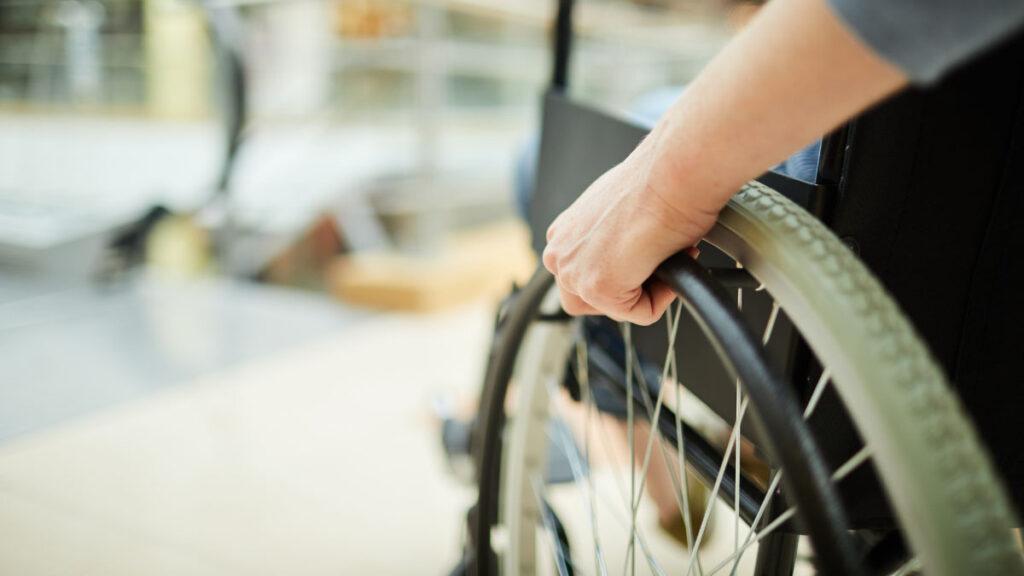
Building on staff input, the Abilities Centre is developing a formal Accessibility Action Plan. Once complete, this plan will include measurable recommendations for creating more inclusive environments and will be led by the agency’s Accessibility Committee in collaboration with staff and leadership.
This work reflects a shift in perspective—from treating accessibility as a requirement to embedding it as a core organizational value, one that influences how we design services, build relationships, and support one another every day.
Staff Wellness & Belonging
Caring for the people who care for others
Equity work starts from within. This year, CASO recommitted to the wellbeing of its staff through Wellness Day 2025 — a powerful celebration of community, healing, and care.
Held in spring 2025, the day began with a grounding outdoor yoga session and a team walk to promote connection and movement. Nearly 200 staff gathered for the full-day event, which also featured a keynote by therapist and wellness curator Nora Elmi, whose reflections on Black mental health, trauma, and lived experience in child welfare deeply resonated with attendees.

Outdoor yoga led by CASO People and Culture Partner
Staff also participated in four energy wellness sessions, including grounding, spiritual healing, and intuitive balance, culminating in a restorative breathwork and visualization practice led by Steven Thompson, a Two-Spirit Indigenous leader. His session offered a return to balance through Indigenous knowledge and teachings.
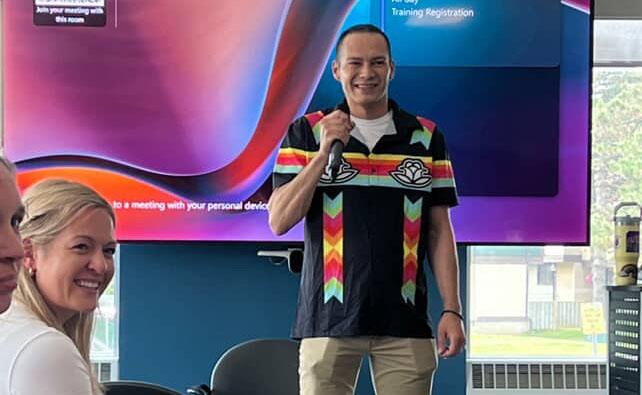
Breathwork workshop
Feedback on Wellness Day was overwhelmingly positive. For many, it was more than just a day of activities — it was a step toward reconnection, healing, and trust. As we continue to evolve our internal culture, events like these reflect CASO’s belief that a child welfare system rooted in compassion and equity must also care for the wellbeing of its people.
